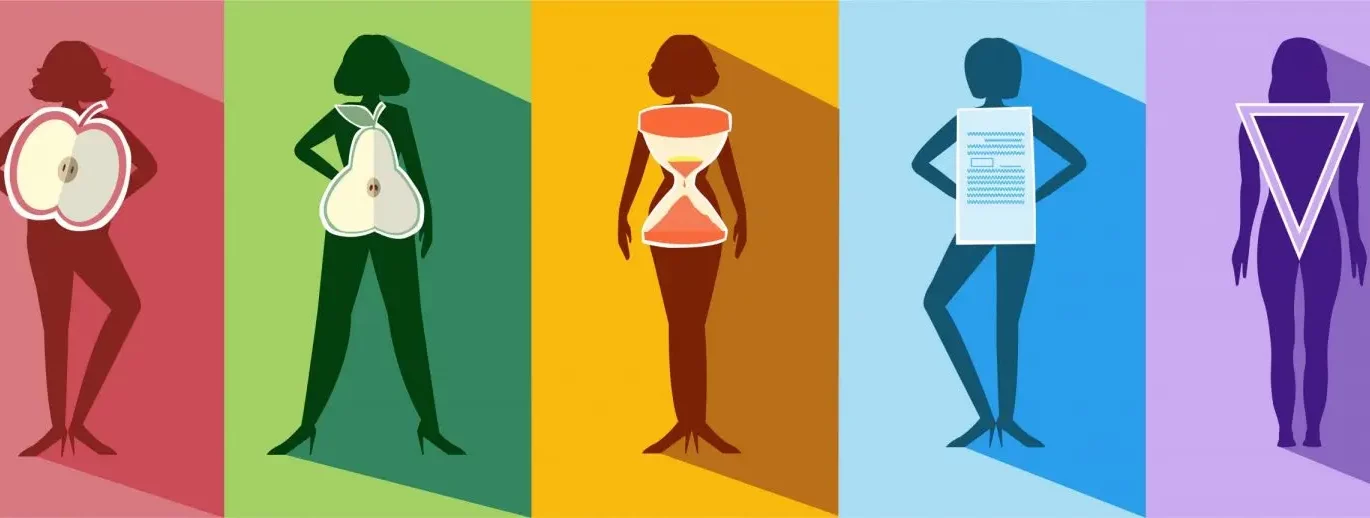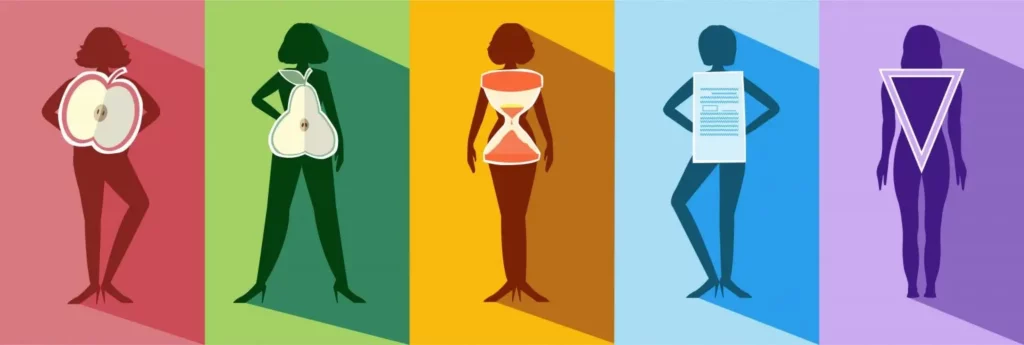


Is There a Thyroid Body Type? – The concept of body types has been around for a long time, with various systems and classifications. One of the most popular ones is the somatotype theory, which was introduced by American psychologist William Sheldon in the 1940s. According to Sheldon, there are three basic body types: ectomorphs, mesomorphs, and endomorphs. Ectomorphs are characterized by a thin and lean build, mesomorphs by a muscular and athletic build, and endomorphs by a round and soft build.
While this system has been widely accepted and used in various fields, including sports, fitness, and nutrition, there has been a growing interest in exploring the link between body types and certain health conditions. One of the conditions that have been associated with a specific body type is thyroid dysfunction.
The thyroid gland is a small butterfly-shaped gland located in the neck that plays a crucial role in regulating metabolism, energy production, and other bodily functions. The gland produces two hormones – thyroxine (T4) and triiodothyronine (T3) – that help control the body’s metabolism. These hormones are essential for the normal development of the brain, nervous system, and other organs.
When the thyroid gland is not functioning properly, it can lead to a range of symptoms and health issues, including weight gain or loss, fatigue, hair loss, and mood changes. Thyroid dysfunction can be result of several factors, including autoimmune disorders, iodine deficiency, radiation exposure, and certain medications.
Some experts suggest that there may be a correlation between certain body types and thyroid function. Specifically, they propose that individuals with an endomorphic body type may be more prone to thyroid dysfunction. The reasoning behind this is that endomorphs tend to have a slower metabolism and a higher body fat percentage, which can put extra stress on the thyroid gland.
Endomorphs, as per the somatotype theory, are characterized by a round and soft build. They tend to have a higher percentage of body fat and a slower metabolic rate, making it harder for them to lose weight. In contrast, ectomorphs are thin and lean, with a fast metabolism, while mesomorphs have a muscular and athletic build.
However, it’s important to note that there is no scientific evidence to support the idea of a “thyroid body type.” While there may be some correlation between body type and thyroid function, this is likely due to a variety of factors, including genetics, lifestyle, and environmental factors.
Additionally, it’s worth noting that thyroid dysfunction can occur in individuals of any body type. While endomorphs may be more likely to experience thyroid issues, this does not mean that they are the only ones who are affected. Other factors, such as age, gender, and family history, also play a role in determining an individual’s risk of thyroid dysfunction.
The thyroid gland is a small, butterfly-shaped gland located in the neck that produces hormones that regulate metabolism. The thyroid hormones control many bodily functions, including heart rate, body temperature, and energy levels. When the thyroid gland produces too much or too little thyroid hormone, it can affect a person’s body shape.
There is no one specific thyroid body type, but people with thyroid imbalances may experience changes in body composition, including weight gain, muscle loss, and changes in fat distribution. People with hypothyroidism, or an underactive thyroid gland, may have a rounder, puffy appearance due to fluid retention and slowed metabolism. They may also experience weight gain, especially in the hips and thighs.

On the other hand, people with hyperthyroidism, or an overactive thyroid gland, may experience weight loss, muscle wasting, and a more angular, lean appearance due to an increased metabolism. In some cases, people with hyperthyroidism may also develop a goiter, which is an enlargement of the thyroid gland that can cause a noticeable swelling in the neck.
While there is no specific thyroid body shape, changes in thyroid function can affect body composition and fat distribution. People with hypothyroidism may have a more pear-shaped body with weight gain in the hips, thighs, and buttocks. They may also have a thicker neck due to the enlargement of the thyroid gland, and their skin may feel cold and dry.
In contrast, people with hyperthyroidism may have a more apple-shaped body with weight loss in the arms and legs and increased fat in the abdomen. They may also have a faster heart rate, and their skin may feel warm and moist.
Thyroid dysfunction can manifest in different ways, depending on whether the gland is producing too much or too little hormone. Hyperthyroidism, or an overactive thyroid, can cause symptoms such as weight loss, rapid heartbeat, anxiety, and sweating. Hypothyroidism, or an underactive thyroid, can cause symptoms such as weight gain, fatigue, hair loss, and depression.
If you are experiencing symptoms of thyroid dysfunction, such as weight changes, fatigue, or mood swings, it’s important to consult with a healthcare provider for proper diagnosis and treatment. Your doctor may perform a physical exam and order blood tests to measure your thyroid hormone levels. Depending on the results, they may recommend treatment options such as medication, lifestyle changes, or surgery.
In some cases, thyroid dysfunction can take place due to a condition, such as an autoimmune disorder. In these cases, treating the underlying condition may help improve thyroid function.
While there is no guaranteed way to prevent thyroid dysfunction, there are certain steps you can take to reduce your risk and manage your symptoms. These include:
While there is no specific diet for a thyroid body type, people with thyroid imbalances may benefit from a balanced diet that supports thyroid function. A diet rich in whole, nutrient-dense foods like fruits, vegetables, whole grains, and lean protein can provide the nutrients necessary for healthy thyroid function.
Some foods that may support thyroid health include:
It’s also essential to avoid foods that can interfere with thyroid function, such as processed foods, refined sugar, and excessive alcohol consumption.
A thyroid body type diet would focus on a nutrient-dense, whole-foods diet that supports thyroid function. It would include plenty of fresh fruits and vegetables, whole grains, lean protein, and healthy fats like olive oil, nuts, and seeds.
Foods to avoid on a thyroid body type diet would include processed foods, refined sugar, alcohol, and foods that can interfere with thyroid function, such as cruciferous vegetables like broccoli and cabbage, which can interfere with iodine uptake in some people.
Some experts suggest that there may be a correlation between body types and thyroid function, there is no scientific evidence to support the idea of a “thyroid body type.” While endomorphs may be more likely to experience thyroid issues, thyroid dysfunction can occur in individuals of any body type. It’s important to consult with a healthcare provider if you are experiencing symptoms of thyroid dysfunction, as proper diagnosis and treatment can help manage your symptoms and improve your overall health. Additionally, taking steps to support overall health, such as eating a balanced diet and engaging in regular physical activity, can help reduce the risk of thyroid dysfunction and support optimal thyroid function.